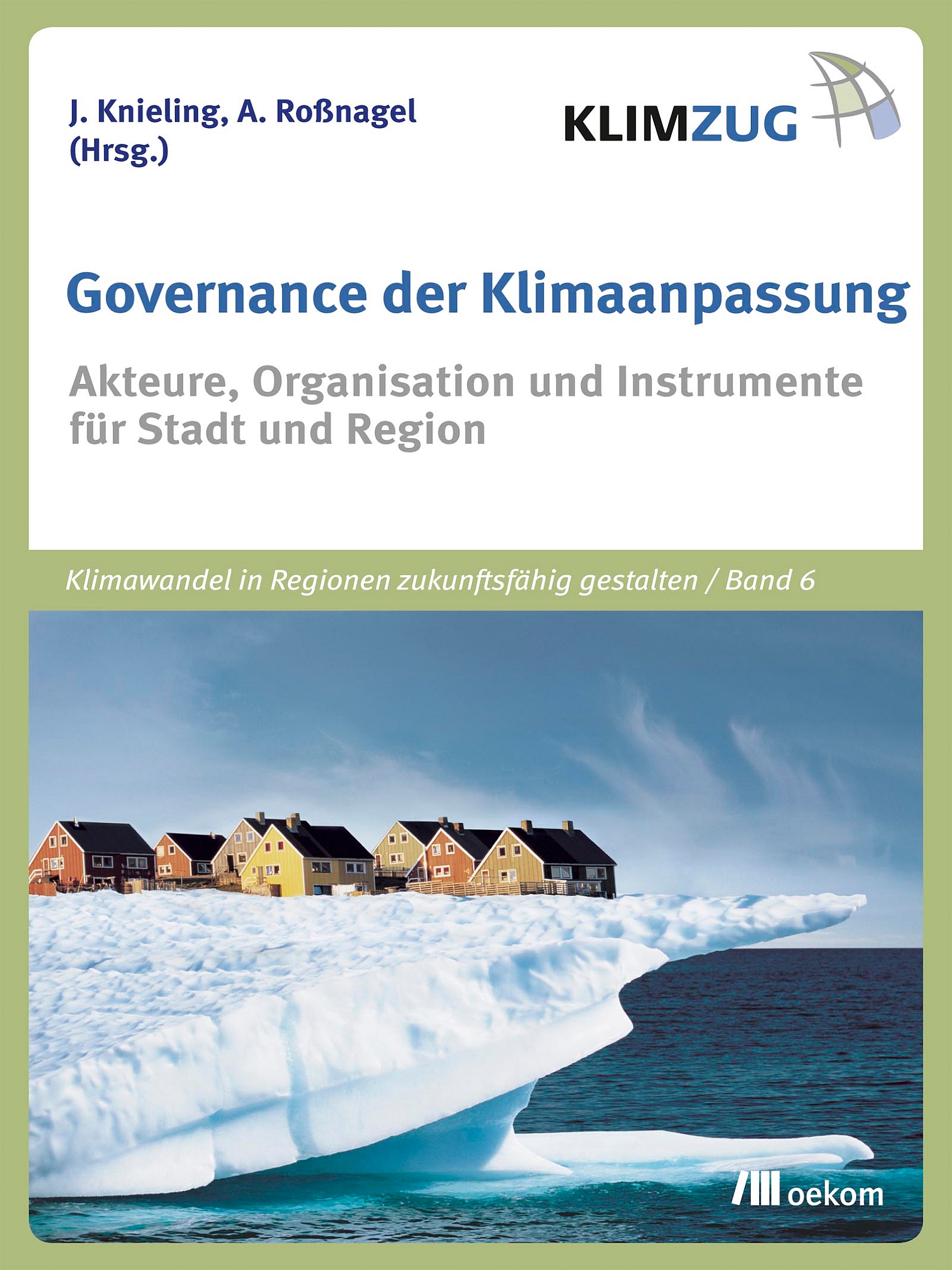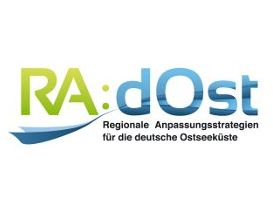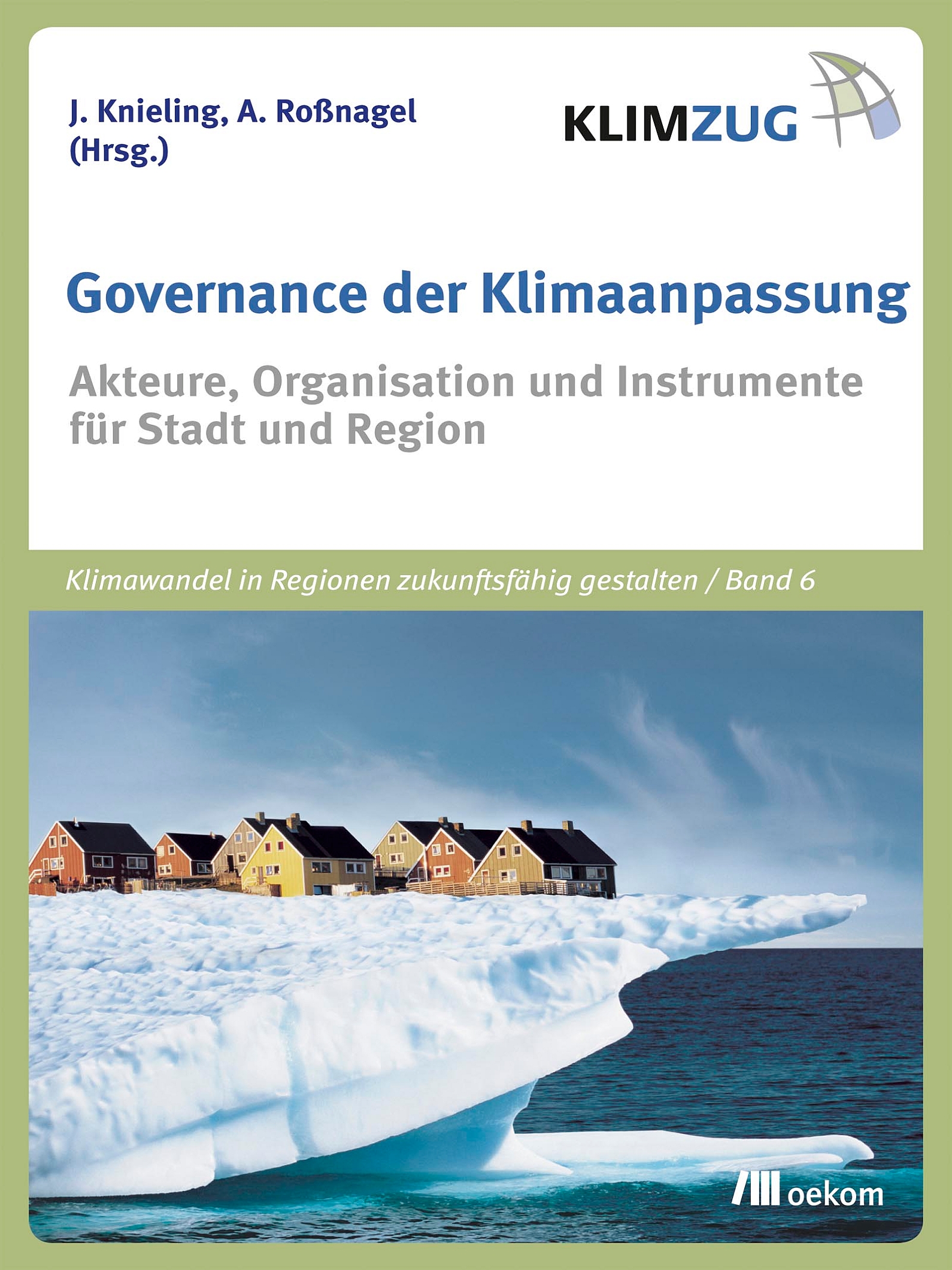
Klimawandel an der deutschen Ostseeküste: Was relevante Akteure über Anpassungsmaßnahmen denken
Ergebnisse einer Befragung in Politik, Verwaltung und Zivilgesellschaft
- Publication
- Citation
Knoblauch, Doris 2014: "Klimawandel an der deutschen Ostseeküste: Was relevante Akteure über Anpassungsmaßnahmen denken. Ergebnisse einer Befragung in Politik, Verwaltung", in: Jörg Knieling and Alexander Roßnagel (eds.): Governance der Klimaanpassung. Akteure, Organisation und Instrumente für Stadt und Region. [Klimawandel in Regionen zukunftsfähig gestalten 6]. München: oekom Verlag, 87-106.
The specific local and regional impacts of climate change at the Baltic sea coast have not yet been sufficiently explored. Despite this uncertainty, first climate adaptation measures have already been implemented. This implies that climate change perceptions and attitudes towards climate adaptation measures are critical in determining local actions, their main focus, and the way in which new challenges and measures are approached. The author, Doris Knoblauch, Senior Fellow at Ecologic Institute, comes to the conclusion that coastal protection is predominant among potential climate adaptation measures. Therefore, other measures do not receive enough attention in the German Baltic sea region.
Doris Knoblauch draws her conclusions from an analysis of 23 semi-standardised interviews that she conducted as part of the RADOST project. The interviews showed that local actors have a very differing understanding of the term "coastal region": Some interviewees only included a narrow strip of land from the sea up to the dunes, while it comprised large parts of the hinterland for others. Yet, all interviewees agreed that the coastal region was important both, as a natural habitat and an economic area.
Taking a look at the six issues of focus of the RADOST project (coastal protection, tourism and beach management, water management and agriculture, ports and maritime economy, nature conservation and use, renewable energies), the author explains what local actors think about adaptation measures in specific issue areas. Among other things, she directs the reader’s attention to conflicts of interest, the lack of understanding by most local actors concerning the distinction between mitigation and adaptation, the fundamental importance of nature conservation for tourism and the neglected role of renewable energies for climate adaptation. Moreover, the author points out some differences between the German Länder Mecklenburg-Western Pomerania and Schleswig-Holstein and she compares her results to the ones of the project nordwest2050.
In summary, Doris Knoblauch finds that sea level rise and storms are dominating the perception of climate change in the Baltic coast region. Accordingly, interviewees named mostly adaptation measures regarding coastal protection, followed by measures concerning the agricultural sector. High winds, wildfire risks and health effects of summer heat waves receive little or no attention until today. Therefore, the author recommends taking measures that also allow the adaptation to such threats.













